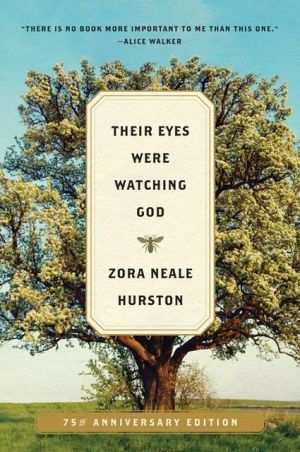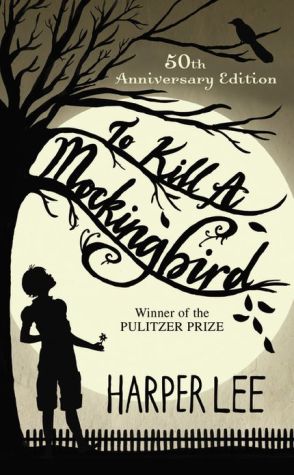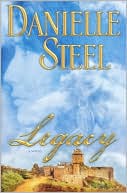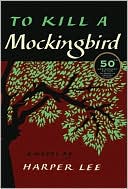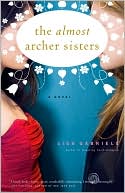Their Eyes Were Watching God
This novel about a proud, independent black woman was first published in 1937 and generally dismissed by reviewers. It was out of print for nearly 30 years when the University of Illinois Press reissued it in 1978, at which time it was instantly embraced by the literary establishment as one of the greatest works in the canon of African-American fiction. \ Mesmerizing in its immediacy and haunting in its subtlety, Their Eyes Were Watching God tells the story of Janie Crawford—fair-skinned,...
Search in google:
Born and raised in Eatonville, Florida, the first incorporated all-black town in the United States, Zora Neale Hurston (1903-60) ranks among the most influential writers of the 20th century, not simply for her influence on subsequent African-American writers but also for the passionate voice she gave to black culture in this country. After attending Morgan State College, Howard University, and Columbia University, Hurston began her career as a folklorist and social anthropologist, traveling to Haiti to study the evolution of the voodoo tradition. She quickly rejected the distanced, scientific attitude of the researcher, however, in order to become immersed in the culture. In two volumes, Mules and Men (1935) and Tell My Horse (1938), Hurston gathered the tales of the American South and the Caribbean. Hurston is most known, however, for her 1937 novel, Their Eyes Were Watching God, a novel that created controversy by refusing to admit black inferiority while simultaneously refusing to depict its characters as victims of a world that thought them inferior. Two recent volumes, The Sanctified Church (1981) and Spunk (1984), collect her essays and short fiction, respectively.AudioFileDee is marvelous in all roles in this stage-worthy performance.
Chapter One\ \ \ Ships at a distance have every man's wish on board. For some they come in with the tide. For others they sail forever on the horizon, never out of sight, never landing until the Watcher turns his eyes away in resignation, his dreams mocked to death by Time. That is the life of men.\ Now, women forget all those things they don't want to remember, and remember everything they don't want to forget. The dream is the truth. Then they act and do things accordingly.\ So the beginning of this was a woman and she had come back from burying the dead. Not the dead of sick and ailing with friends at the pillow and the feet. She had come back from the sodden and the bloated; the sudden dead, their eyes flung wide open in judgment.\ The people all saw her come because it was sundown. The sun was gone, but he had left his footprints in the sky. It was the time for sitting on porches beside the road. It was the time to hear things and talk. These sitters had been tongueless, earless, eyeless conveniences all day long. Mules and other brutes had occupied their skins. But now, the sun and the bossman were gone, so the skins felt powerful and human. They became lords of sounds and lesser things. They passed nations through their mouths. They sat in judgment.\ Seeing the woman as she was made them remember the envy they had stored up from other times. So they chewed up the back parts of their minds and swallowed with relish. They made burning statements with questions, and killing tools out of laughs. It was mass cruelty. A mood come alive, Words walking without masters; walking altogether like harmony in a song.\ "What shedoin coming back here in dem overhalls? Can't she find no dress to put on? — Where's dat blue satin dress she left here in? — Where all dat money her husband took and died and left her? — What dat ole forty year ole 'oman doin' wid her hair swingin' down her back lak some young gal? Where she left dat young lad of a boy she went off here wid? — Thought she was going to marry? — Where he left her? — What he done wid all her money? — Betcha he off wid some gal so young she ain't even got no hairs — why she don't stay in her class?"\ When she got to where they were she turned her face on the bander log and spoke. They scrambled a noisy "good evenin'" and left their mouths setting open and their ears full of hope. Her speech was pleasant enough, but she kept walking straight on to her gate. The porch couldn't talk for looking.\ The men noticed her firm buttocks like she had grape fruits in her hip pockets; the great rope of black hair swinging to her waist and unraveling in the wind like a plume; then her pugnacious breasts trying to b ore holes in her shirt. They, the men, were saving with the mind what they lost with the eye. The women took the faded shirt and muddy overalls and laid them away for remembrance. It was a weapon against her strength and if it turned out of no significance, still it was a hope that she might fall to their level some day.\ But nobody moved, nobody spoke, nobody even thought to swallow spit until after her gate slammed behind her.\ Pearl Stone opened her mouth and laughed real hard because she didn't know what else to do. She fell all over Mrs. Sumpkins while she laughed. Mrs. Sumpkins snorted violently and sucked her teeth.\ "Humph! Y'all let her worry yuh. You ain't like me. Ah ain't got her to study 'bout. If she ain't got manners enough to stop and let folks know how she been malkin' out, let her g'wan! "\ "She ain't even worth talkin' after," Lulu Moss drawled through her nose. "She sits high, but she looks low. Dat's what Ah say 'bout dese ole women runnin' after young boys."\ Pheoby Watson hitched her rocking chair forward before she spoke. "Well, nobody don't know if it's anything to tell or not. Me, Ah'm her best friend, and Ah don't know."\ "Maybe us don't know into things lak, you do, but we all know how she went 'way from here and us sho seen her come back. 'Tain't no use in your tryin' to cloak no ole woman lak Janie Starks, Pheoby, friend or no friend."\ "At dat she ain't so ole as some of y'all dat's talking."\ "She's way past forty to my knowledge, Pheoby."\ "No more'n forty at de outside."\ "She's 'way too old for a boy like Tea Cake."\ "Tea Cake ain't been no boy for some time. He's round thirty his ownself."\ "Don't keer what it was, she could stop and say a few words with us. She act like we done done something to her," Pearl Stone complained. "She de one been doin' wrong."\ "You mean, you mad 'cause she didn't stop and tell us all her business; Anyhow, what you ever know her to do so bad as y'all make out? The worst thing Ah ever knowedher to do was taking a few years offa her age and dat ain't never harmed nobody. Y'all makes me tired. De way you talkin' you'd think de folks in dis town didn't do nothin' in de bed 'cept praise de Lawd. You have to 'scuse me, 'cause Ah'm bound to go take her some supper." Pheoby stood up sharply.\ "Don't mind us," Lulu smiled, "just go right ahead, us can mind yo' house for you till you git back. Mah supper is done. You bettah go see how she feel. You kin let de rest of us know."
Acknowledgments ixForeword xi Their Eyes Were Watching God 1 Note on Publication History 229
\ AudioFileDee is marvelous in all roles in this stage-worthy performance.\ \ \ \ \ Heard Word. . . thanks to this audiobook, Zora's characters speak to us - through the wonderful voice of Ruby Dee.\ \ \ Saturday ReviewA classic of black literature, Their Eyes Were Watching God belongs in the same category — with that of William Faulkner, F. Scott Fitzgerald, and Ernest Hemingway — of enduring American literature.\ \ \ \ \ Sacred FireIn Their Eyes Were Watching God, Zora Neale Hurston draws a sharp portrait of a proud, independent black woman looking for her own identity and resolving not to live lost in sorrow, bitterness, fear, or romantic dreams. Like most lives of black women of the early 20th century (or any time for that matter), Janie Crawford's life, told here in her own sure voice, is not without its frustrations, terrors, and tragedies — in fact, it is full of them. But the power of her story comes from her life-affirming attitude: Through all the changes she goes through — once divorced, twice widowed (once by her own gun-wielding hand)-she kept a death-grip commitment to live on her own terms, relying only on her own guts, creativity, strength, and passion, and the power she drew from her community, to pull her through. In Janie, Hurston created a character that reflected her own strong belief that the most important mission we have is to discover ourselves.\ Janie Crawford was raised in the household of her grandmother, Nanny Crawford, a maid and a former slave. Janie, like her mother before her, was born of rape, and Nanny is committed to protecting her from the sexual and racial violence she and her daughter endured. She pushes Janie into marriage with an older man named Logan Killicks, a farmer with some property. Her life with Killicks is full of boredom and hard labor, so she runs off with Joe Starks, a handsome and well-off storekeeper who moves her to the all-black town of Eatonville, Florida. Even with the prestige and security this new marriage brings, she is bored and unfulfilled by her stunted life with Starks. When Starks dies, Janie begins to live with Tea Cake Woods, a man who cannot provide her with the stability that her Nanny taught her to value, but who finally gives her the passion and satisfaction she'd been looking for all along. Even when further tragedy greets her, she maintains a staunchly positive view of the future.\ Hurston, an anthropologist and folklorist, fills this novel with shotgun rhythms and the poetic language of her native south. Language in this novel is crucial; it is through the beautiful self- made idiosyncrasies of southern speech and storytelling that Janie expresses her own will toward self-definition. Their Eyes Were Watching God has been called the first African American feminist novel because of its portrayal of a strong black woman rebelling against society's restrictions — and the received wisdom of her Nanny, no less — to seek out her own destiny. But ultimately, this is not a novel that looks out to the world to make political protest or social commentary; it concerns itself with describing the power that lies within us to define ourselves and our lives as we see fit, unbound and unfettered by society's limitations and prejudices. As Alice Walker once wrote, "There is enough self-love in that one book — love of community, culture, traditions — to restore a world."\ \ \ \ \ \ Saturday ReviewA classic of black literature, Their Eyes Were Watching God belongs in the same category -- with that of William Faulkner, F. Scott Fitzgerald, and Ernest Hemingway -- of enduring American literature." -- Saturday Review\ \ \ \ \ From Barnes & NobleThe classic story of light-skinned Janie Crawford's evolving selfhood through three marriages. A novel that "...belongs in the same category with that of William Faulkner, F. Scott Fitzgerald, and Ernest Hemingway.''--Saturday Review.\ \
